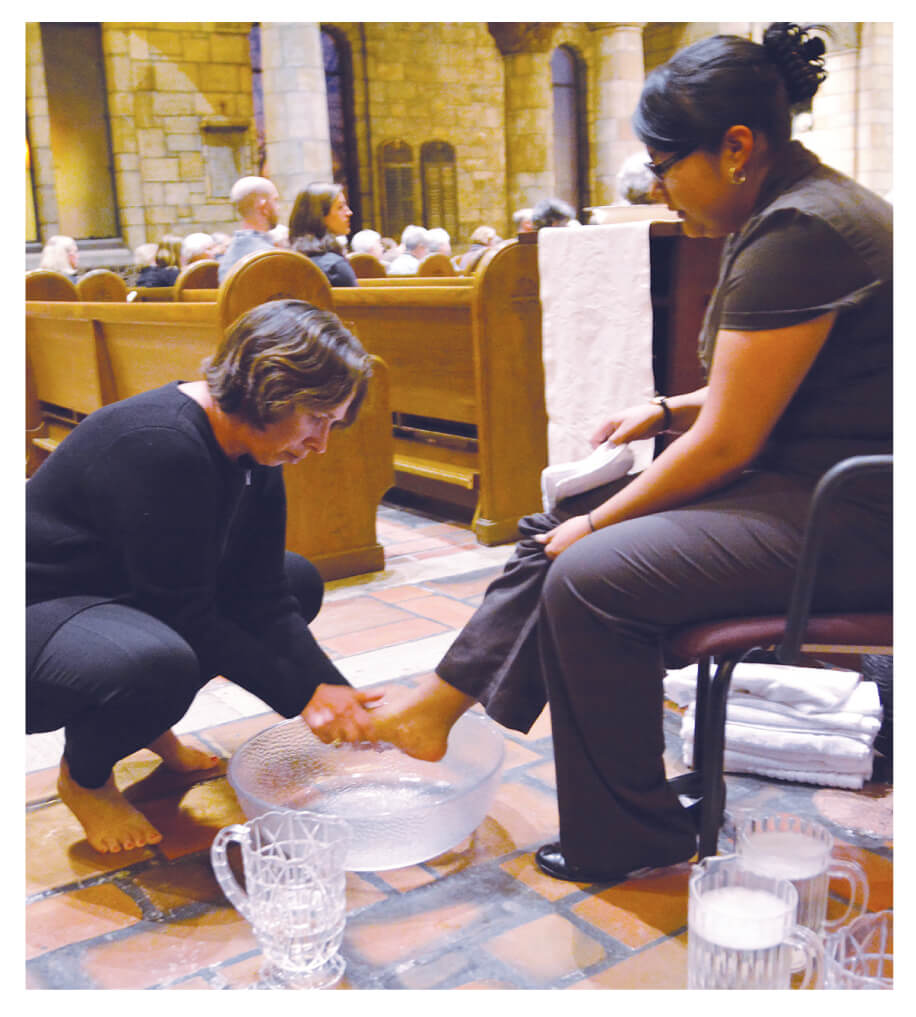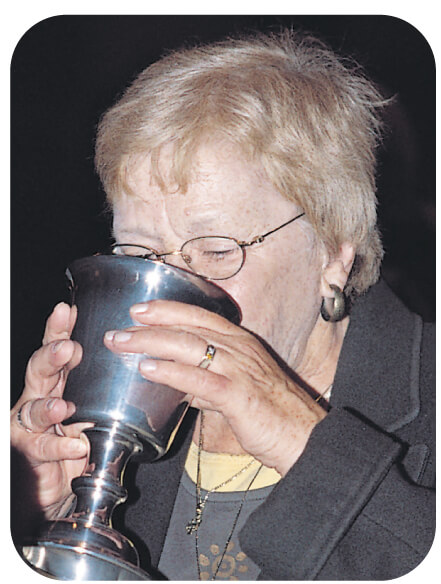
Palm/Passion Sunday celebrates two events. Liturgy begins with the gospel recalling Jesus’ triumphant entry into Jerusalem. It moves quickly to Jesus’ passion. The mockery of Roman soldiers who braid a crown of thorns for the royal pretender, bow before him, and spit in his face takes center stage away from the palm-waving crowd that gives Jesus a kingly welcome to Jerusalem.
Jesus’ passion is the reverse of the kingly life to which the devil tempted him early in Matthew’s gospel. Jesus does not jump off the temple to be caught by angels; on the contrary temple representatives and religious leaders successfully seek his death. Jesus does not rule the world, rather he is subject to the representative of Caesar, the Roman governor who knows he is innocent but allows him to be put to death.
The events of the passion test and manifest Jesus’ love for God, for the world, for his friends, and for the community that still gathers in his name. Jesus endures not only the pain and shame of crucifixion but one friend’s betrayal, another’s denial, and God’s seeming abandonment.
- What in your life has demanded more than you thought you had to give?
- What has Jesus’ passion meant to you? When have you found Jesus with you in times of betrayal or suffering or seeming abandonment?
The full passion narrative begins around a table of festivity and friendship that Jesus shares with his disciples. Jesus pledges the cup of wine he blesses at the meal as a sign of his life blood. It foreshadows all that will happen to him and later to his disciples. “Drink from it, all of you,” he says, “for this is my blood…to be poured out on behalf of many for the forgiveness of sins.” Later in prayer Jesus begs God to let the cup pass by without his drinking from it.
Many of Jesus’ own disciples betray and forsake him. Judas hands him over to the authorities, using words of respect and a gesture of intimacy to identify him. Peter, who at supper claims he would die with Jesus rather than disown him, publicly denies ever knowing him.
The leaders of Jesus’ own religious community and nation hand him over to Pilate, the foreigner who allows him to be crucified. The crowd that calls for Jesus’ blood must include people who have followed him, listened to him teach, and watched him heal. They, too, turn against him.
- Who in our world is living Jesus’ crucifixion?

At the supper Jesus identifies the cup not only as his blood that will be poured out but as the blood of the new covenant. Communion in Jesus’ blood becomes the bond that unites him with those who follow him in faith. To drink this cup is to pledge one’s life, to commit to friendship with Jesus and fidelity to God, even unto death.
Those who witness the full outpouring of Jesus’ love in his life and in his death come to share his commitment to self-giving. Jesus’ death and resurrection reveal self-giving love as the creative life-giving power at the heart of all that is.
Baptism into Jesus’ self-giving death and life-giving resurrection makes us Jesus’ kin, his blood. In Eucharist we drink from his cup. We claim his life commitment as our own.
- Who invites you to give yourself more fully?
- What commitment will you make this Sunday when you drink the cup that signifies Jesus giving his lifeblood?
